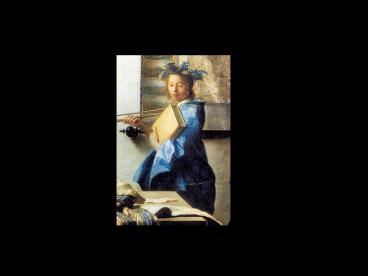Medieval PowerPoint PPT Presentation
1 / 34
Title: Medieval
1
(No Transcript)
2
Medieval
3
An Age of Absolutism and Upheaval I.
Absolutism A. absolutism in theory B.
absolutism in practice C. the landed nobility
(nobility of the sword) D. the robe
nobility E. the church F. the urban
bourgeoisie G. the lower classes II. Richelieu
and the Revival of France III. Mazarin and the
Fronde IV. The reign of Louis XIV V. English
Constitutionalism A. James I B. Charles I and
the Parliamentary Revolt C. Civil War and the
Cromwellian Commonwealth D. James II and
the Glorious Revolution
4
Absolutism in Theory
- No limitations on kings sovereignty
- Based on divine right theory
- Not arbitrary or despotic
- No right of resistance
5
Absolutism in Practice
- Must answer to God and fundamental laws of the
realm - Above the law, but
- Defender of the body politic
- Must recognize traditional rights and privileges
6
(No Transcript)
7
The Landed Nobility
- Mostly lords (seigneurs)
- Exempt from the taille, special treatment in the
courts, among other privileges - Many absentee landlords by 17th century
- Regarded as a superior race
- No institutional process for asserting their
interests, but - Nobles with powerful client networks could exert
a great deal of power
8
(No Transcript)
9
The Robe Nobility
- Royal officeholders
- Judges of the Parlement
- Significant vested interest
- Some became royal commissioners, or intendants
10
The Catholic Church
- Information network
- Immense wealth
- Competing authority
11
The Urban Bourgeoisie
- Not peasants, nobles, or priests
- Diverse group
- No cohesive middle class
- Fragmented, localized, technologically
conventional - Lure of royal office
- Financing the crown
12
The Lower Classes
- Precarious position staple goods heavily taxed
- Isolated no class consciousness
- Revolt not revolution
13
An Age of Absolutism and Upheaval I.
Absolutism A. absolutism in theory B.
absolutism in practice C. the landed nobility
(nobility of the sword) D. the robe
nobility E. the church F. the urban
bourgeoisie G. the lower classes II. Richelieu
and the Revival of France III. Mazarin and the
Fronde IV. The reign of Louis XIV V. English
Constitutionalism A. James I B. Charles I and
the Parliamentary Revolt C. Civil War and the
Cromwellian Commonwealth D. James II and
the Glorious Revolution
14
(No Transcript)
15
The Three Hs -The Huguenots -The Habsburgs -The
(Haughty) Nobles
16
(No Transcript)
17
An Age of Absolutism and Upheaval I.
Absolutism A. absolutism in theory B.
absolutism in practice C. the landed nobility
(nobility of the sword) D. the robe
nobility E. the church F. the urban
bourgeoisie G. the lower classes II. Richelieu
and the Revival of France III. Mazarin and the
Fronde IV. The reign of Louis XIV V. English
Constitutionalism A. James I B. Charles I and
the Parliamentary Revolt C. Civil War and the
Cromwellian Commonwealth D. James II and
the Glorious Revolution
18
(No Transcript)
19
(No Transcript)
20
(No Transcript)
21
(No Transcript)
22
(No Transcript)
23
(No Transcript)
24
(No Transcript)
25
An Age of Absolutism and Upheaval I.
Absolutism A. absolutism in theory B.
absolutism in practice C. the landed nobility
(nobility of the sword) D. the robe
nobility E. the church F. the urban
bourgeoisie G. the lower classes II. Richelieu
and the Revival of France III. Mazarin and the
Fronde IV. The reign of Louis XIV V. English
Constitutionalism A. James I B. Charles I and
the Parliamentary Revolt C. Civil War and the
Cromwellian Commonwealth D. James II and
the Glorious Revolution
26
(No Transcript)
27
(No Transcript)
28
(No Transcript)
29
Absolutism in Theory
- No limitations on kings sovereignty
- Based on divine right theory
- Not arbitrary or despotic
- No right of resistance
30
Absolutism in Practice
- Must answer to God and fundamental laws of the
realm - Above the law, but
- Defender of the body politic
- Must recognize traditional rights and privileges
31
Constitutionalism in Theory
- Limitations on kings sovereignty (or no king i.
e. a republic - Based on contract theory
- Representative assembly (e.g. British Parliament)
safeguards the peoples rights
32
Constitutionalism in Practice
- A constitution does not guarantee democracy
- A constitution can substitute one form of elite
rule with another - A constitution can limit political participation
based on race, class, and gender
33
And what is it we want to do? Why . . . to
establish white supremacy in this
State. -John B. Knox, Alabama
consti- tutional convention, 22 May 1901
34
Modern society -Individualistic -Pluralistic -
Egalitarian -Literate -Impersonal
(contracts) -Rational/progressive -Centralized
Medieval society -Corporate -Catholic -Hierarchic
al -Oral -Personal (oaths of loyalty) -Ritualistic
/traditional -De-centralized

